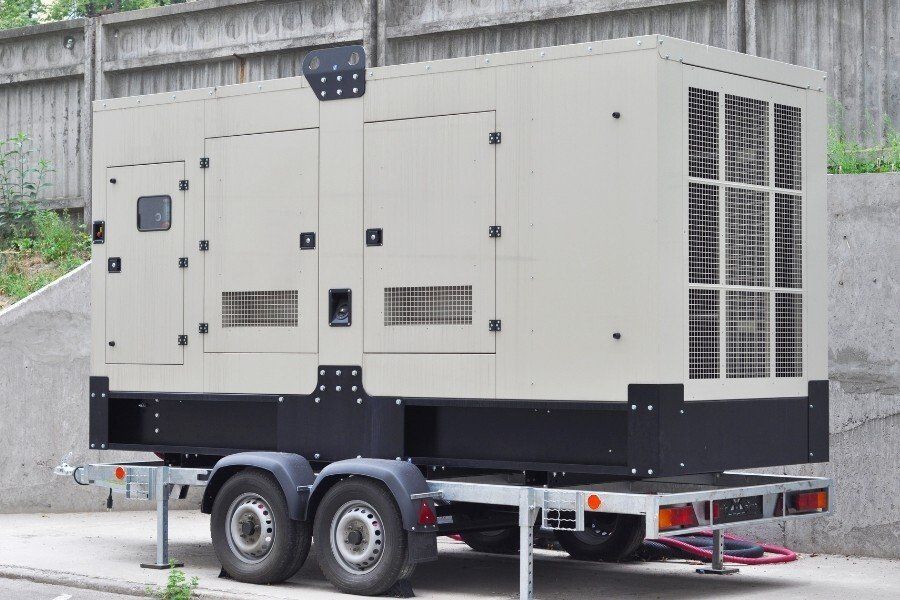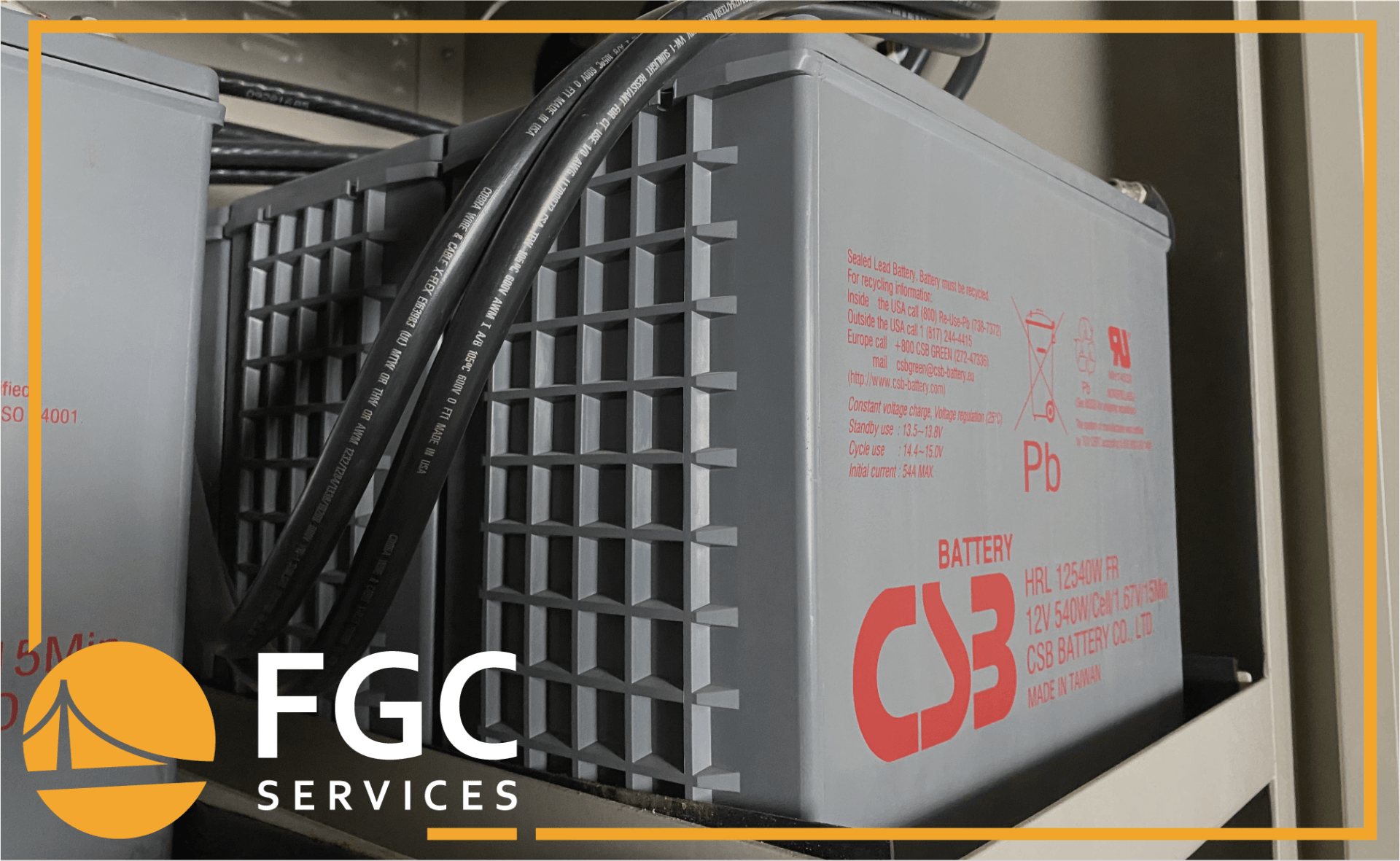A Guide to Commercial Generator Rentals: Types, Rates, Fuel Sources, and Safety
24 January 2022
Share this article:
Commercial generator rentals are a great way to save money and get the commercial power you need. However, there are many types of commercial generators on the market with different fuel sources, rates, and sizes. As a result, choosing the best option for your facility and application can be complicated.
In this guide, you will learn about commercial generators as well as how to size them for your needs. You will also find safety tips that can help keep your business running smoothly incase of an emergency!
Read on to get started.

Which Generator Type is Right For You?
Not all commercial generators are created equal, and they vary in size, fuel type, and power output. When it comes to commercial generator rentals there are two primary types:
The first is professional generators, which usually serve construction and light industrial situations. Smaller in size but with high power output (usually between 5,000 to 10,000 watts), these generators are well suited as a backup to existing standby generators or during events where short-term power is required.
The second type is full industrial generators, designed to deliver large amounts of power for industrial applications. An example includes keeping critical components of factories or medical centers operating. Output for industrial generators exceeds 10,000 watts, making them more expensive, but also the preferred option for most industrial applications.
The Different Types of Generator Fuel
There are different sources of commercial fuel, with diesel and propane generators being the most common for large industrial applications.
Diesel
Diesel generators are typically commercial grade, with diesel fuel as the main power source. As the industry standard, these generators are available in the broadest range of sizes and power configurations. They also have lower rental rates typically. They are best suited for short-term rentals with low operating time and minimal loads.
Natural Gas
With nearly zero emissions, natural gas generators are the cleanest available option. Natural gas is relatively inexpensive when compared to other options like diesel and can be stored on-site.
As a result, this type of generator is best suited for long-term rentals with long operating times and high loads. The fuel consumption these applications would require if using a diesel generator makes natural gas a more practical and efficient solution. Examples include schools, hospitals, and other facilities where environmental concerns are important.
A commercial natural gas generator will provide between four to eight hours of power before refueling or switching to another fuel source is necessary, depending upon the size of the unit.
How to Size a Rental Generator
It's important to choose a commercial generator size based on your application's requirements. However, knowing how to select the best option can be confusing. The first things to consider when sizing a commercial generator are:
• What will it power?
• How long do you need it?
• How much voltage is required?
To begin, determine if the generator is going to service the entire facility or only supply power for critical functions. Some of those functions might include:
• Lighting
• Computer Systems
• Emergency Safety Equipment
• Ventilation & Air Conditioning
Then, identify what type of voltage is required and whether you will need a single or three-phase. This can be a complicated and detailed process if you're unfamiliar with the industry, but it is absolutely critical to choosing the correct generator. When in doubt, consult with a generator rental professional about your requirements before renting.
Rental Generator Safety
There are several steps you can and should take with your rental generator to ensure proper operation and safety.
Before using your commercial generator unit for the first time, consult with its owner's manual or the technicians who deliver the generator to learn how it should be started and operated.
It is also important that commercial rentals are stored somewhere safe and dry when not in use. This procedure will help ensure your commercial rental remains durable while providing you with peace of mind. Additional safety precautions worth taking include:
• Avoiding excessive strain which could cause the generator to stop working
• Ensuring all cables, cords, and accessory devices are insulated and grounded
• Verifying the generator is properly ventilated at all times, with plenty of airflow
• Avoiding contact with hot surfaces
• Storing fuel away from the generator at all times
• Making sure the generator is stopped and secured before servicing
If you're ever unsure of what steps to take to ensure the safety of your generator operation and your staff, ask the technician to demonstrate how to operate the rental safely. Not only are we happy to do so, but it could spare you a lot of damage.
Commercial Generator Rates
Ultimately, the cost of your generator rental will be based on the size of the generator, how long it will be rented for, and how many hours it will be used. When renting a generator, rental rates are generally fixed and based mostly on the length of time rented or the generators’ size.
For this reason, and the safety of your load, it's important to ensure you don't choose generators that are too large for your needs.
The Facility Gateway Critical Services Rental Process
Ready to get started on the generator rental process? Tell us about your project.
What generator size is required? What is the location of the generator? How long will you need a rental for? When you work with our commercial generator rentals team, we'll work with you to determine the best rental option for your needs.
Some of our commercial generator rates include:
• Hourly Rates (includes set up time)
• Daily Rates (24 hours)
• Weekly Rates (seven days)
• Monthly Rates (30 days or more)
We list the rental rates upfront, including all fees—no hidden charges or tricks. Once an agreement is signed, we start mobilizing the generator solution and team to your site. We set it up, get power connected, and provide ongoing fueling on some plans.
Contact our team today to get started!
Connect with Us:





